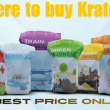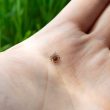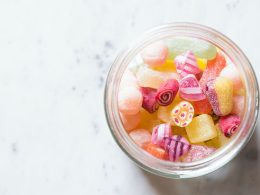Are you tired of putting in hours at the gym without seeing any results? Have you hit a plateau in your fitness journey and can’t seem to break through it? Well, we have news for you – nutrition could be the missing piece of the puzzle. Many people underestimate the impact that proper nutrition can have on reaching their fitness goals. In fact, it’s often said that abs are made in the kitchen, not just at the gym. Join us as we explore why nutrition is crucial for achieving your desired level of health and fitness.
What is Nutrition?
Nutrition is the process of nourishing or being nourished, and it’s something that we all have to pay attention to if we want to be healthy. What we eat and drink provides our bodies with the energy, vitamins, minerals, antioxidants and phytochemicals they need to function properly.
Good nutrition is essential for good health, and it can also help you reach your fitness goals. Eating a nutritious diet gives you the energy you need to work out effectively, and it helps your body recover from exercise more quickly.
There are many different ways to eat a nutritious diet, and there’s no one “perfect” way to do it. The key is to focus on eating whole, unprocessed foods as much as possible, and to limit your intake of sugar, salt and unhealthy fats. It’s also important to stay hydrated by drinking plenty of water every day.
The Different Types of Nutrients
There are three primary types of nutrients: macronutrients, micronutrients, and water. Macronutrients are those nutrients that the body needs in large amounts, and they include carbohydrates, proteins, and fats. Micronutrients are those nutrients that the body needs in small amounts, and they include vitamins and minerals. Water is essential for the body to function properly, and it make up the majority of our bodies.
Each type of nutrient plays an important role in helping us reach our fitness goals. Carbohydrates are the body’s main source of energy, so we need to eat them in order to fuel our workouts. Proteins help repair and build muscle tissue, so we need to eat enough of them to see results from our strength-training efforts. Fats provide essential fatty acids and help with hormone production, so we need to include them in our diets as well. And finally, water is crucial for maintaining hydration levels, which is important for both performance and recovery.
By making sure we’re getting enough of all these different types of nutrients, we can set ourselves up for success in reaching our fitness goals.
The Importance of a Balanced Diet
A balanced diet is essential for reaching your fitness goals. Eating the right foods helps support a healthy body weight, provides energy for workouts, and helps reduce recovery time.
The best way to ensure you’re eating a balanced diet is to focus on whole, unprocessed foods. These items are usually found in the perimeter of the grocery store, and include things like fresh fruits and vegetables, lean meats, and whole grains. You can also supplement your diet with protein shakes or other healthy snacks.
It’s also important to pay attention to portion sizes. When trying to lose weight or build muscle, you may need to eat more or less than someone who is trying to maintain their current weight. Listen to your body and adjust your portions accordingly.
A balanced diet is an important part of any fitness journey. By eating the right foods, you’ll be able to better reach your goals and enjoy a healthier lifestyle overall.
How to Eat for Your Fitness Goals
If you’re working hard to reach your fitness goals, nutrition is key. Eating the right foods can help improve your energy levels, help you recover from workouts, and make it easier to reach your goals. Here are a few tips on how to eat for your fitness goals:
1. Eat plenty of protein. Protein provides the building blocks for muscle growth, so if you’re looking to add muscle mass, be sure to include plenty of protein in your diet. Good sources of protein include chicken, beef, fish, eggs, and dairy products.
2. Incorporate healthy fats into your diet. While fat has been demonized in the past, we now know that not all fats are bad for you. In fact, certain healthy fats can actually help promote weight loss and improve heart health. Good sources of healthy fats include avocados, olive oil, nuts, and seeds.
3. Focus on complex carbohydrates. Complex carbs are a great source of energy and help fuel your workouts. Good sources of complex carbs include oatmeal, brown rice, sweet potatoes, and quinoa.
4. Drink plenty of water. Water is essential for optimal health and proper hydration is key to reaching your fitness goals. Be sure to drink plenty of water throughout the day and even during your workouts if possible.
5. Don’t forget about fruits and vegetables! Fruits and vegetables are packed with vitamins, minerals, and antioxidants that are essential for good health
Foods to Avoid When Trying to Reach Your Fitness Goals
When you’re trying to reach your fitness goals, it’s important to pay attention to the nutrition of the foods you’re eating. There are some foods that can actually sabotage your efforts and prevent you from reaching your goals. Here are some foods to avoid when trying to reach your fitness goals:
1. Processed Foods: Processed foods are often high in calories, unhealthy fats, and simple carbohydrates that can quickly lead to weight gain. They also tend to be low in essential nutrients like vitamins, minerals, and fiber that are necessary for good health.
2. Sugar-Sweetened Beverages: Sugar-sweetened beverages like soda, sports drinks, and energy drinks are a major source of empty calories that can contribute to weight gain. They can also cause spikes in blood sugar levels that can lead to cravings and increased hunger.
3. Alcohol: Alcoholic beverages contain empty calories that can quickly add up and lead to weight gain. Additionally, alcohol consumption can interfere with fat burning and muscle building processes in the body.
4. High-Fat Dairy Products: Dairy products like whole milk, butter, and cheese are high in saturated fat which can increase levels of LDL (bad) cholesterol in the blood and promote heart disease. Choose low-fat or non-fat dairy options instead.
5. Fried Foods: Fried foods are typically high in unhealthy fats and calories that can quickly lead to weight gain. They may also contain trans fats which have been
Conclusion
I hope this article has demonstrated the importance of nutrition in reaching your fitness goals. When it comes to working out, diet plays a crucial role in determining how successful you will be in achieving your desired results. A well-balanced diet combined with regular exercise is a surefire way to maximize your potential and reach your goals faster than ever before. Nutrition should never be underestimated when it comes to making progress towards improved health and fitness; make sure that you prioritize it as part of any plan for success!












